This story originally appeared in i-D’s Utopia in Dystopia Issue, no. 362, Spring 2021. Order your copy here.
During a time when we are all increasingly questioning our surroundings, from our entire social system to the four walls we live between, Travis Scott has been busy building his very own dream world. In just over a decade, the 28-year-old Houston native — born Jacques Bermon Webster II — has gone from university dropout to his generation’s undisputed leader, consistently meeting the constant demand for something instant, defiant, boundary-pushing and above all, authentic. His extraordinary ability to identify some prescient root in music and art and fashion, paired with a burning desire to create and collaborate, has put Travis at the forefront of hip-hop, pushing it forward into new places, new sounds.
He’s part rockstar, part hip-hop mogul – following in the footsteps of Pharrell Williams and Kanye West before him, but equally breaking out from those old templates into something newer, more modern, more flexible. Early on, he forgoed the tropes of traditional, lyrical rap with his own brand of atmospheric-yet-brash, lo-fi-yet-highly-autotuned soundscapes — blending the psychedelic with punk energy to win the hard-earned approval of today’s hip-hop fans. His seemingly single-minded approach to such vital decisions in his career often appear clairvoyant years later. A once eyebrow-raising, grungy approach to streetwear is today imitated by the masses, desperate to get their hands on whatever he co-signs in paparazzi shots, from the specific colour of a Supreme hoodie he threw on, to his own Air Jordan collab. His risks always come with a reward.
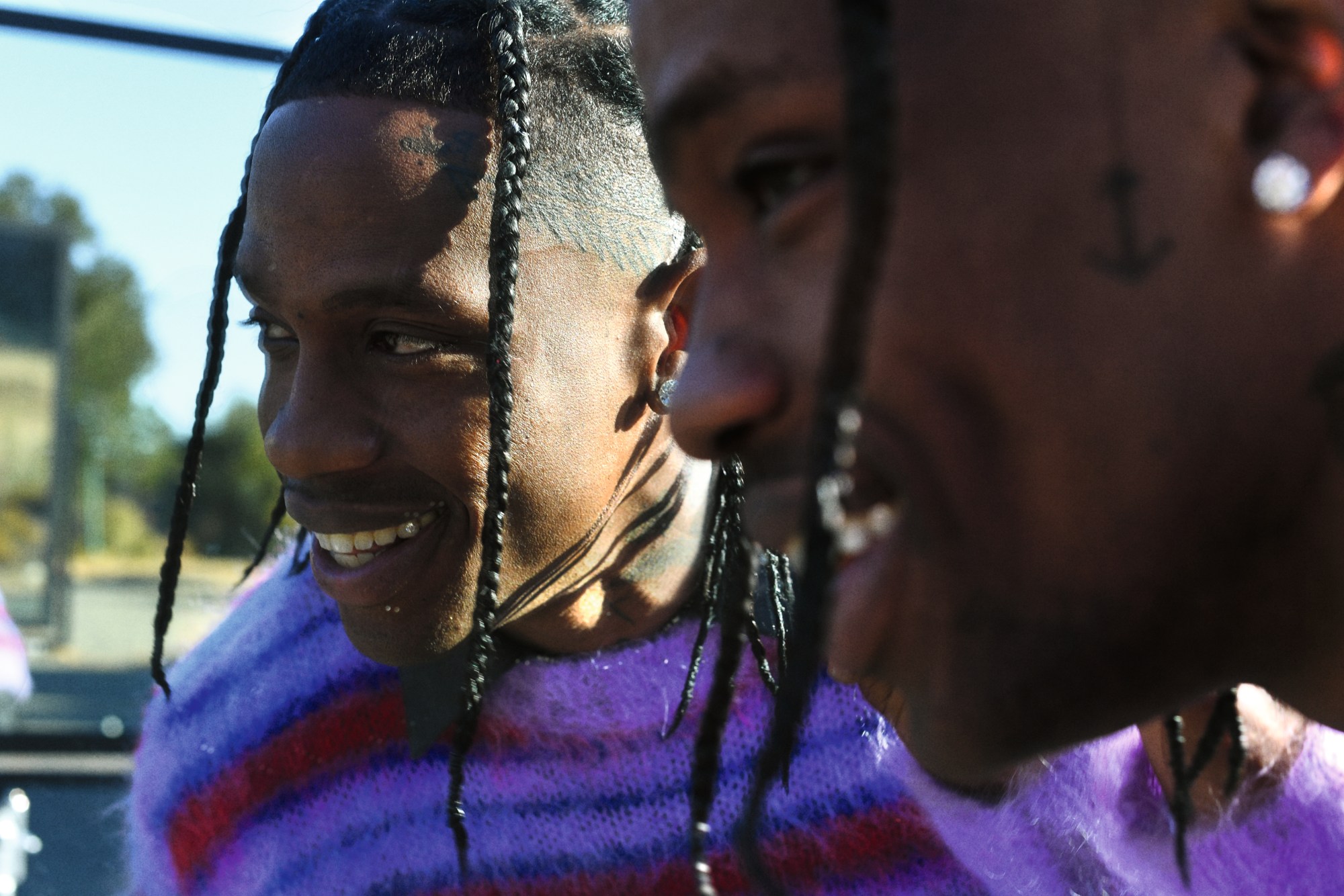
It was working with Kanye, both on the GOOD Music Cruel Summer compilation album and his own mixtape Owl Pharaoh around 2012, that a then freshly-signed Travis grabbed the attention of hip-hop fans. This began Travis’s rapid ascent to the top. He released his first studio album, Rodeo, in 2015 to acclaim, but it was its follow up, 2016’s Birds In The Trap Sing McKnight, where he began to lay out his blueprint; collaborating with hip-hop heavyweights like Kendrick Lamar and Young Thug, working with Nick Knight to shoot its iconic cover art, and taking to the skies on an animatronic bird during his now legendary and sweat-soaked live shows – where his loyal legion of teen fans obediently open up moshpits on command, as Travis demands they rage alongside him.
But none of this broke through the mainstream quite like 2018’s Astroworld. More than an album, this was a manifesto; one which spawned its own festival and his first number one single “Sicko Mode”, blowing away critics, fan expectations and sales figures alike, to firmly place him as the most exciting, genre-pushing, multi-platinum, multi-Grammy nominated modern rapstar. Three more number one singles have followed. What next? Millions of fans around the world have feverishly spent the past two years seeking out any details they can find of his next album, set to release this year, and all they know so far is its title: Utopia.
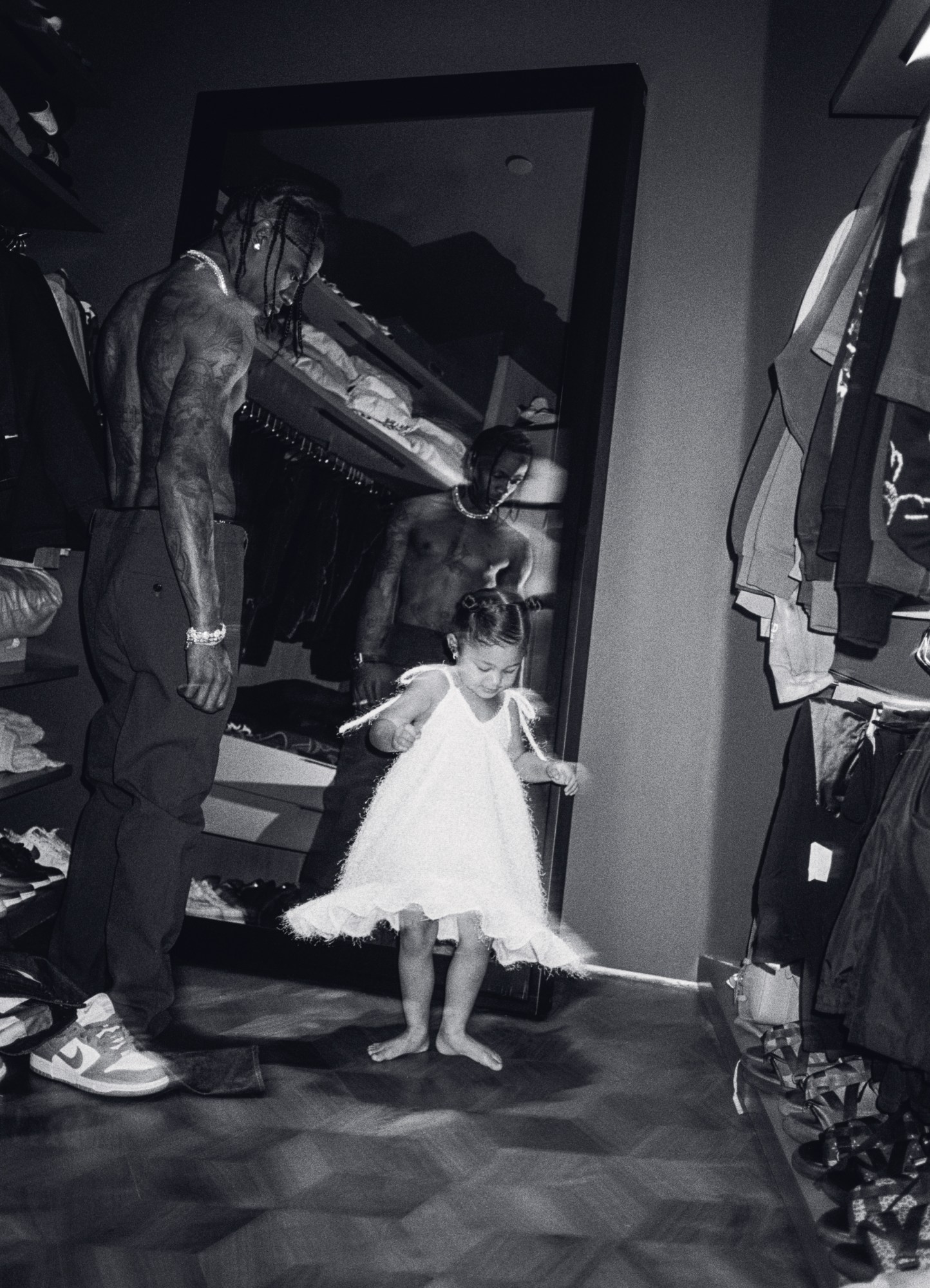
In that time, Travis has existed almost as a modern deity, ever-present on our screens as major brands and fashion houses have tripped over themselves to partner with him. He’s worked with Nike, McDonalds and Playstation, whilst seemingly having built up enough cultural capital of his own to become a household name in his own right without selling out.
It seems strange somehow that Travis is still so enigmatic — media-shy in his own way, secretive in interviews and often guarded, despite mastering the art of self-promotion on his path to astronomical success.
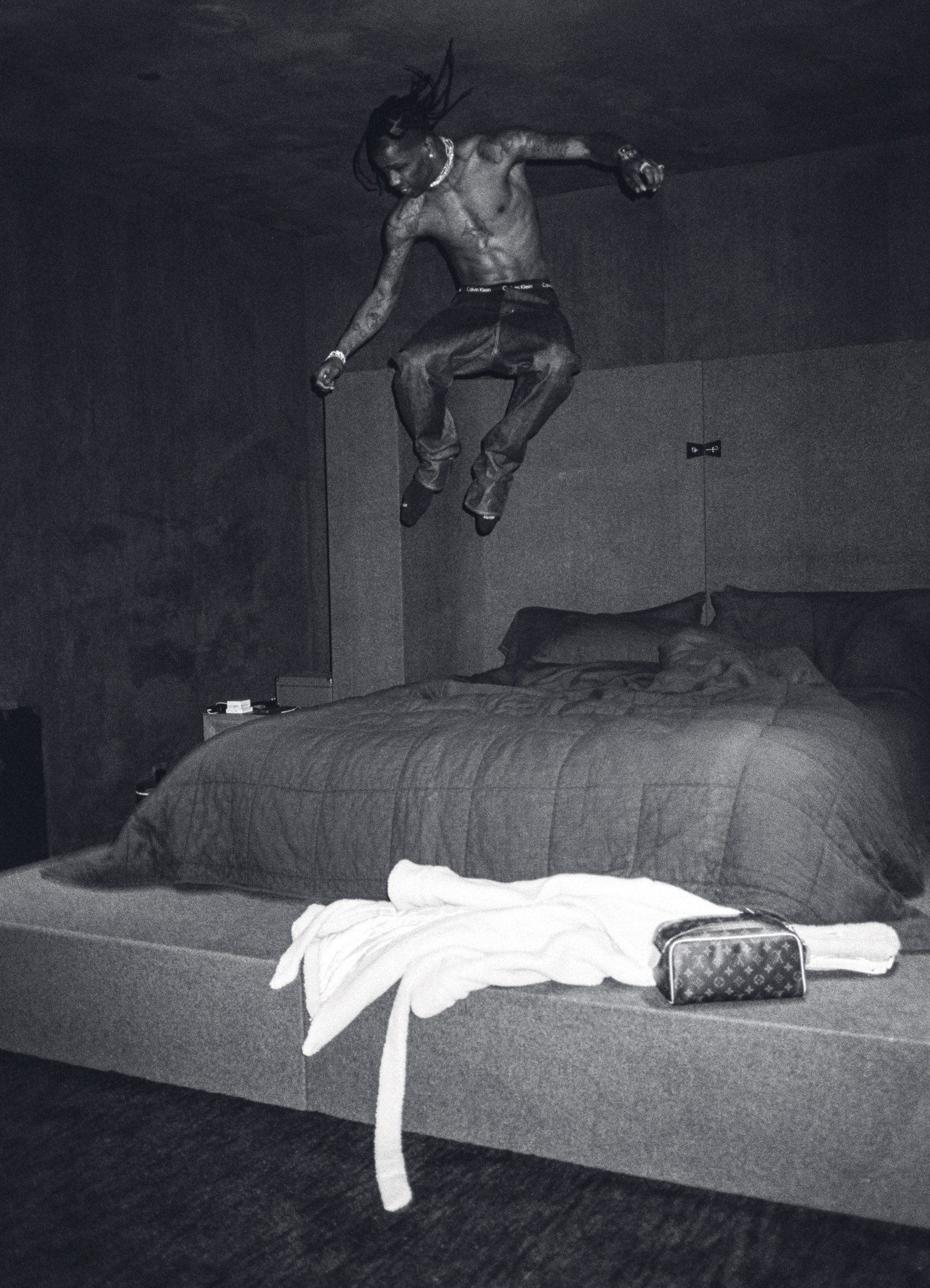
So who better to lead the conversation than someone he can relate to; a fellow architect of their own universe? Here, Robert Rodriguez — the acclaimed director behind From Dusk Till Dawn, Spy Kids and Sin City — asks Travis the questions his fans need answering, on creating the year’s most anticipated album, the challenges of being in the studio while dystopia seems rampant outside it, and how his perception of life has changed since becoming a father.
Robert: Hey, hey buddy.
Travis: Hello! Happy new year!
Happy new year. I’m here in Austin, Texas. Where are you? Are you in Los Angeles?
I’m in Houston.
In Houston. Okay cool, so you’re home too. Good.
Yeah, I’m here. I’ve just been watching the Rockets play the Lakers.
It’s good to talk again. Really good.
I know man. I miss you, man. How’s The Mandalorian shit going?
It went great. My Boba Fett episode came out and then we announced that I was doing a whole series on Boba Fett, so I’m working on that. All the stuff I had to kind of keep secret is now out, so that’s good.
Which episode did you do? I’m gonna watch it.
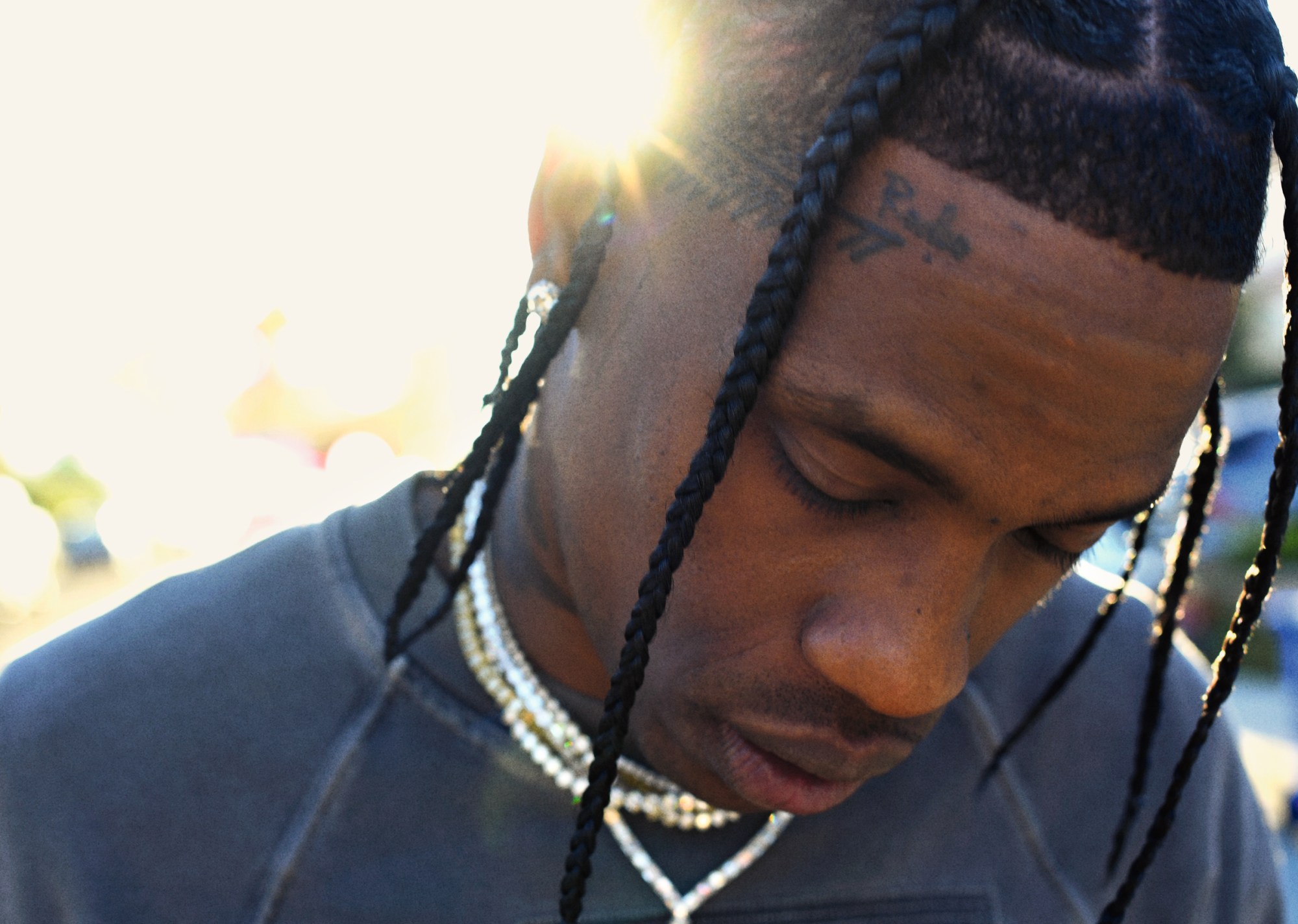
I did episode six. I also just did this Spy Kids type family film called We Can Be Heroes, that just opened on Netflix over Christmas and that’s still the number one movie in the world right now. But you’ve had the biggest year of everybody! You had three number one songs, you’re on fire, and you’re working on a new album? Who’ve you been working with?
Ahh man, you know, it’s so crazy. I never tell people this, and I’m probably going to keep it a secret still, but I’m working with some new people and I’m just trying to expand the sound. I’ve been making beats again, rapping on my own beats, just putting everything together and trying to grow it really. That’s been one of the most fun things about working on this album. I’m evolving, collaborating with new people, delivering a whole new sound, a whole new range.
How are you approaching even following up something that was as big as Astroworld? What’s your mindset? What are some of the strategies you use?
It’s never about repeating myself, I’m just trying to make the next saga… each album is like a saga. You know, you’re one of my favourite directors. Everything you fucking do man.
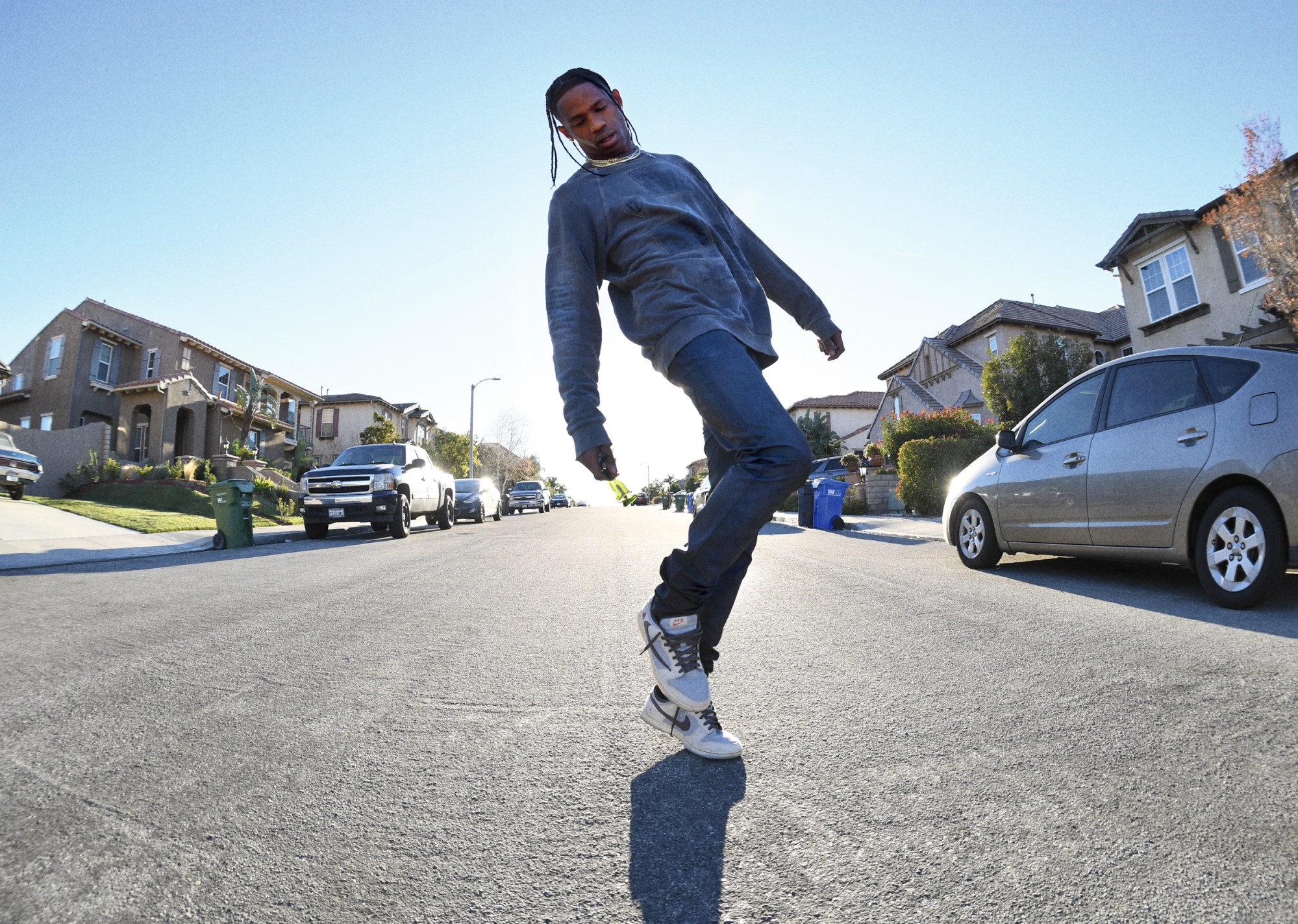
You’re very generous about that. Thank you very much. That’s very, very kind of you.
You just… you different man. Even – going back to talk about collaboration – like the shit you did with Frank Miller. Collaboration in film is really different, directors don’t really work together. You might direct something, or just write a screenplay, or be working with someone else’s script. I’m sorry, this interview is meant to be about me, but I got one question about From Dusk Till Dawn. You built that club?
Yeah, it was a set. It was a facade that we put out in the middle of a dry lake, and the inside was built in an old, empty spice factory. The back was a painting we did. So it’s a mix of miniatures, painting, facades — you use whatever you can to create the illusion. We’re both from Texas, and we both feel like we’re outsiders — we’ve got to go do anything that we possibly can to make a career work and to do whatever inspires us. I have definitely found, though, there’s huge pressure to follow up a success. How do you process making the biggest album of the year? Do you feel that pressure?
I don’t feel no pressure, except to keep the fans alive. There’s so much more ground I can cover, and I want to cover it, and I love the challenge of it. I want to make a fucking new sound. I might spend days banging my head against a wall trying to figure it out, but once I do it, it’s like ultimate ecstasy.
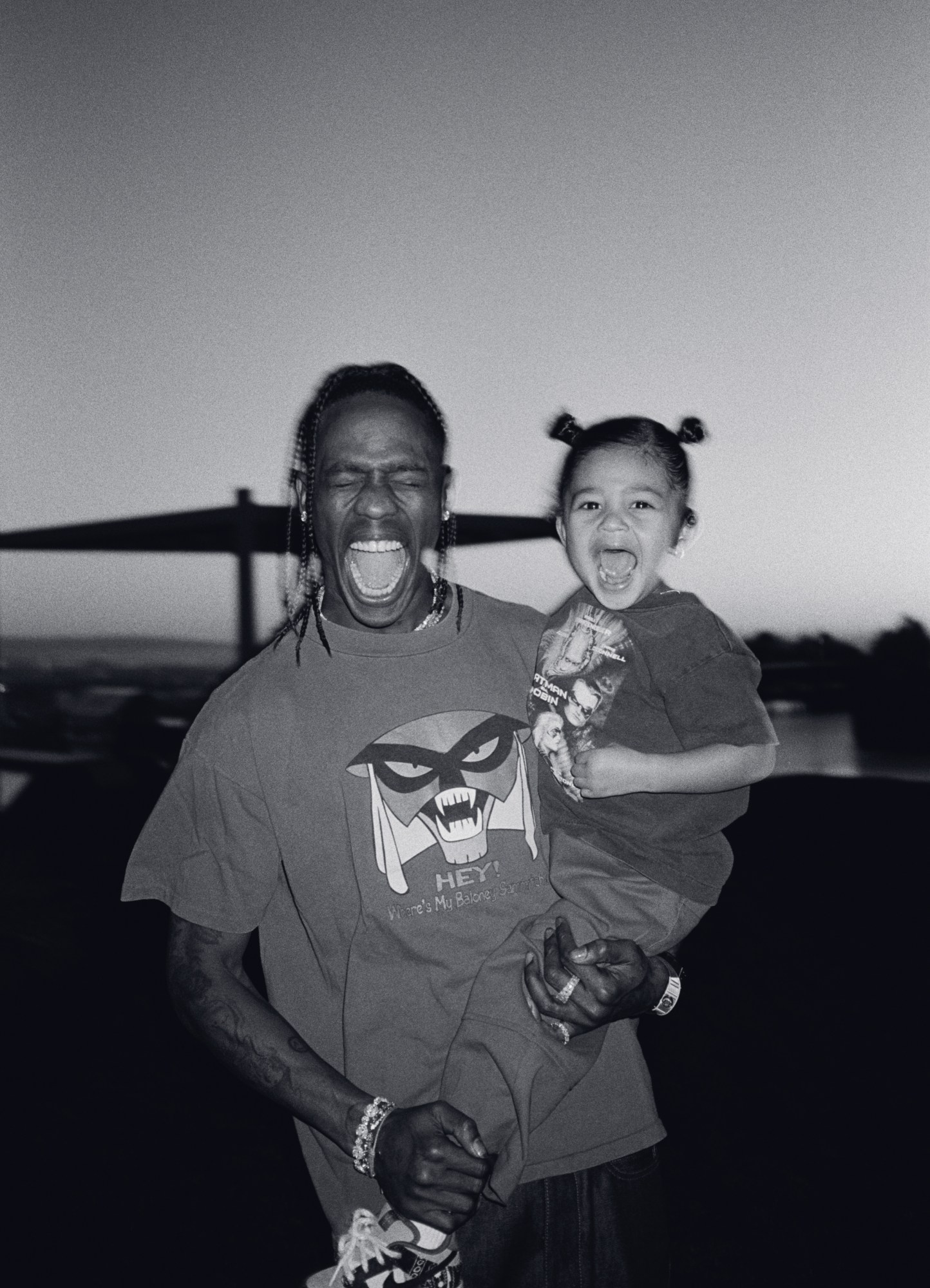
You’re just right there where you need to be, ‘cause when people feel pressure to follow something up, it puts them artistically in a place where they are thinking about it the wrong way. When you created Astroworld you weren’t in a place where you felt pressure. That’s a lesson, you know? Can we talk about your approach to collaboration in general? Last year you worked with Christopher Nolan, Nike, McDonalds, Fortnite, Playstation… they’re all very different. What’s the thread that unites them?
You know, it’s like with Nike… those are the shoes I wear, the shoes I’ve been wearing since I was a kid. Playstation — when it was rough, when I was a kid, gaming was an escape. When I was younger and in the studio, sometimes we couldn’t really afford to eat, you know? So McDonald’s held it down. That double cheeseburger got us through those moments. But it’s about being able to create an experience, even if these are small things. These collaborations are tools in a way, pieces of everyday life, big brands that allowed us to generate ideas. In 2021 we want to keep evolving, keep generating.
How has fatherhood changed your approach to music? I know you got a kid. I’ve got kids. It changed me. How does being a father change your approach to music, performing, or your lifestyle?
Fatherhood influences my job. It has a huge impact. It’s a major inspiration, you know what I’m saying? Especially Storm, she’s just acting like a kid. She’s always interested, she catches on and learns things and adapts to things so fast. It’s so crazy, Stormi’s generation is way different from mine, and she’s way different from my younger brother and sister. Kids show you a different outlook on life, how they view things, the type of pressures they have and what makes them happy, what makes them move. Like, when she watches certain movies or listen to certain songs. Or she watches my concerts on YouTube and she realises she’s there, she’s ready to see now. I realised my job is way more important than what I thought because of her. More responsibility, you know? You’ve got to use that properly.
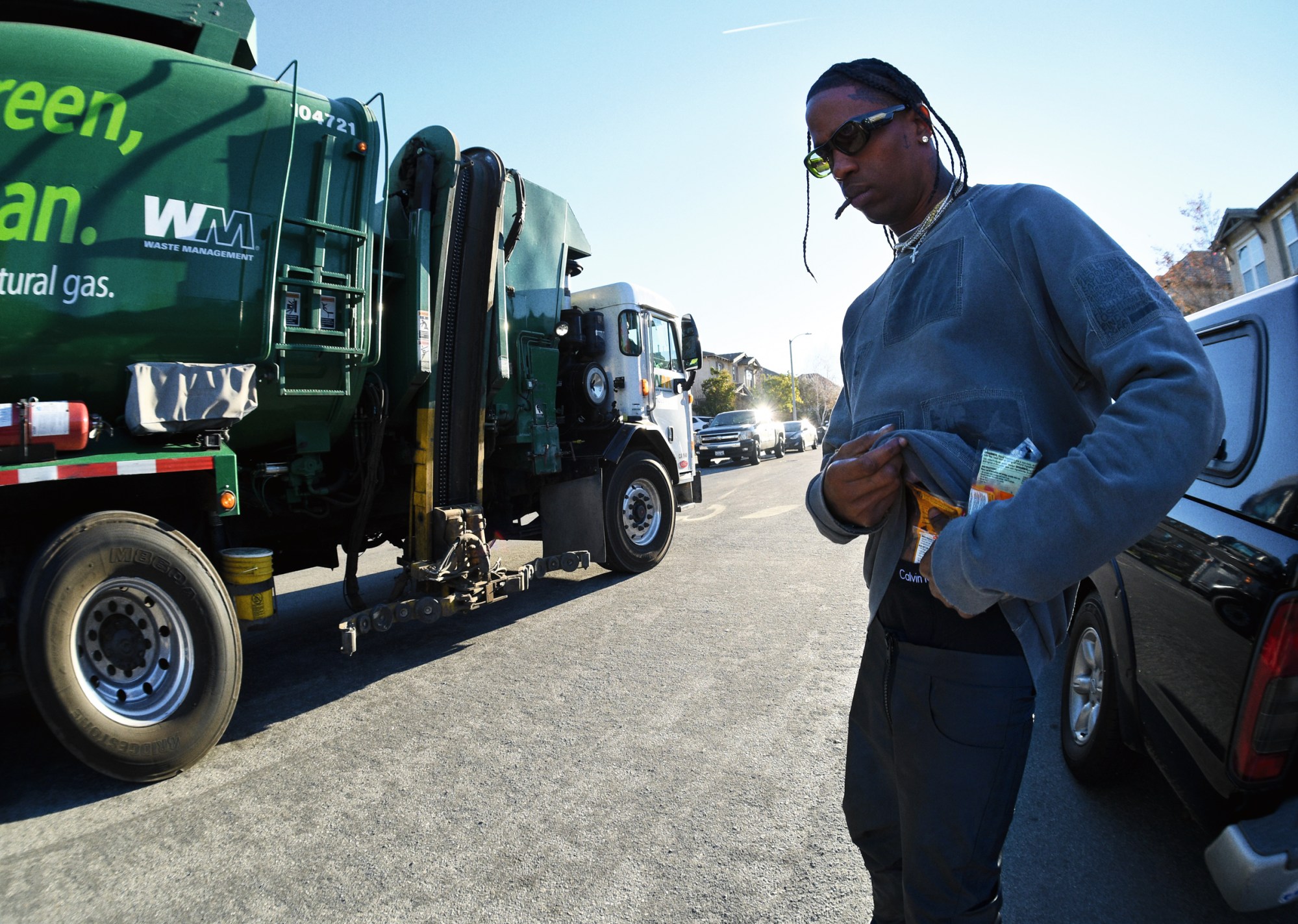
They become your biggest collaborators.
Yeah, man. Fatherhood just be like, I don’t live for myself anymore. I was already going so hard for the fans and now, oh man, Stormi, it’s like… I love that.
It was the biggest addition to my life. It’s why I make kids films as well as adult films. I wanted something to inspire them.
Spy Kids is one of my favourite movies.
You told me! You told me you and your little brother used to watch that when y’all were kids and that blew me away.
And it’s so crazy cause watching the movie I was like, ‘Yo, this is like way crazier than like a kids movie. This ain’t no kids movie. You know what I’m saying?’ This shit really fucks with the rules of kids movies.
That was 20 years ago!
Wow. 20 years! Like what?
I was making that for my kids! I wanted them to feel like they were in the future. Now that’s the reality but back then that was some pretty crazy stuff.
It’s amazing you can come from making one kind of film and then make a film that fills a theatre full of kids. It’s all part of the essence of what you do, being able to do both.
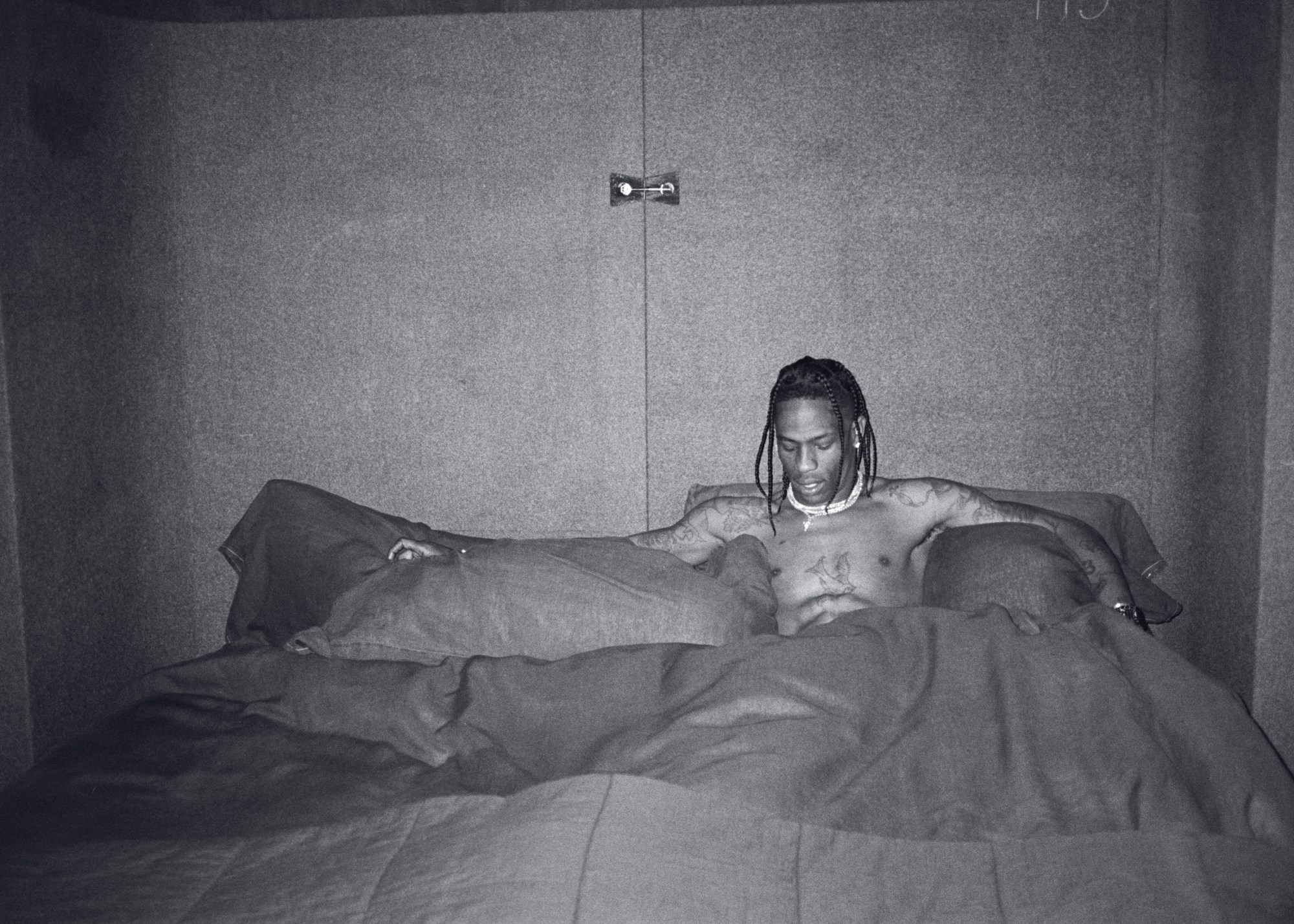
One thing I love about your music is how cinematic it is, how visual, it’s like you’re directing too, seeing this connection between music and movies. How did the pandemic effect recording the album? Or did it? We both seem to have been quite prolific over it.
It made me way more productive. You know, you’re not doing any shows. You not really doing too much travelling. You in the crib, and I got the studio at home and I have the peace to record all day, you know? Obviously like, you lose a little bit by not being able to travel and, you know, just see the earth.
You probably don’t even realise how much that inspires you until that’s taken from you and you’re like oh okay, yeah, it’s tough to just be in the recording studio all day. And are you bringing back your festival post-corona? How’s that work?
Hopefully we can bring it back at the end of this year. Around November.
Yeah, that would be great.
You better come check it out.
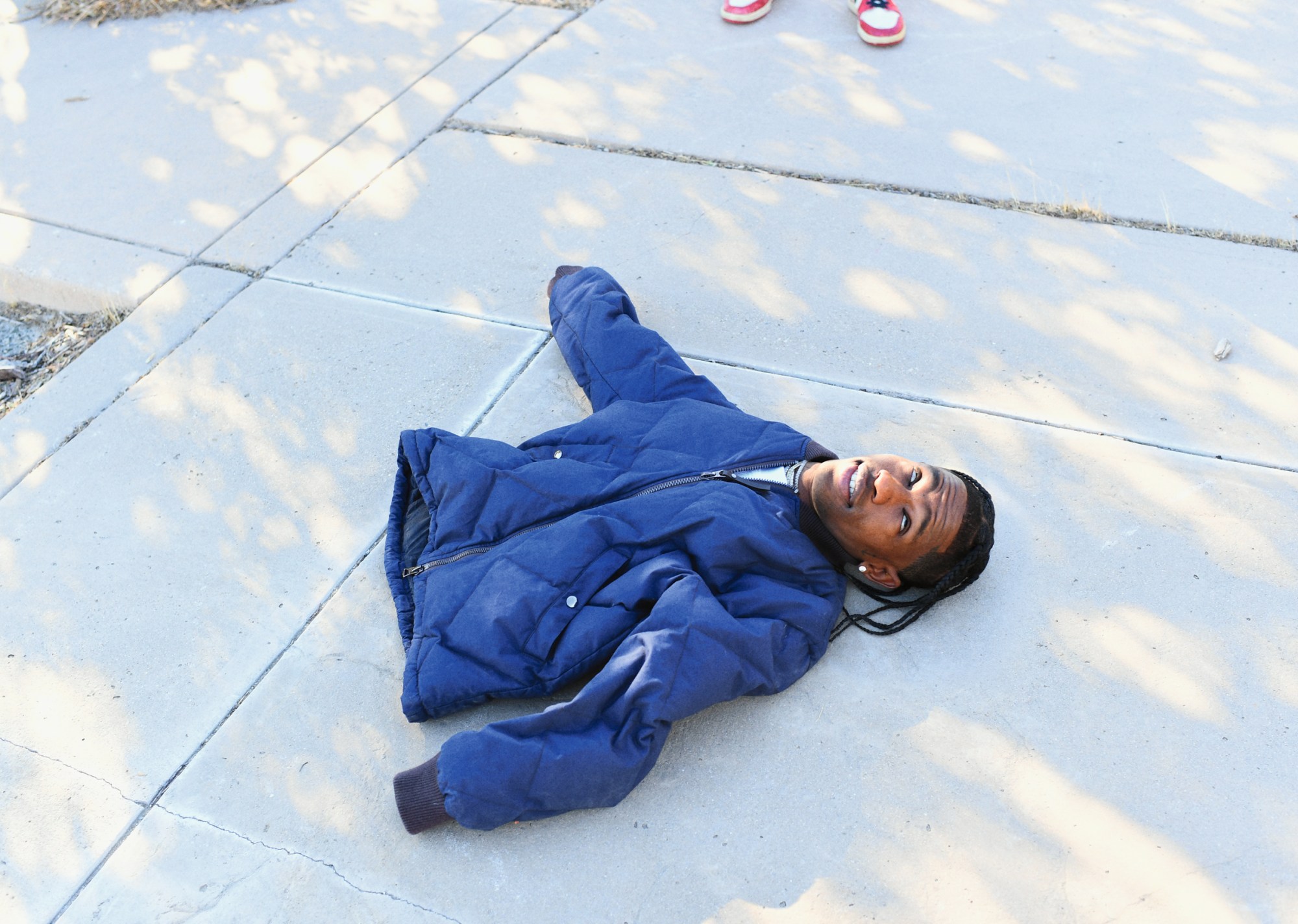
I wanna just talk about our shared inspiration, because I love how your sound feels very cinematic to me. You seem drawn to this cinematic quality in music. Music and movies are so connected in so many ways. You seem to be always looking for new technologies, ways to push the envelope with technology to get to a new place musically and visually. What are your creative processes like when it comes to music and imagery and the connection between music and movies?
I know this sounds so redundant but I seriously put your films on to get inspiration for making music. All of them. The way you use music in your films is how I see my music being, like healing, playful, beautiful, gory: it’s this essence of music. All these different modes of music that overlap, like the gory is also beautiful, is also magical, all these different modes, even a bit of “sick mode”, you know what I’m saying. Your images spark my imagination, whether it’s a flat road, the colour of a rock…
What do you like about Mexico? What draws you to it? I love working there.
Mexico, you know, it’s so crazy. I’m always seeing images of cactuses, and I always had different visions for the actual image of a cactus. So people used to always send me things with an actual cactus on it and I’ll be like, ‘Oh man’. I used to always alter it because I used to be like, ‘Yo, I went out there in the mountain of cactuses. How we have normal trees, there were cactuses, man. A whole army of cactuses…
I’ve got to take you on this drive to the crib that I’m working at in Mexico. It’s so easy though, we go through the canyons and it’s surrounded by cactuses man. I wanted to do this shoot for the magazine out there. It was this whole mountain terrain and everywhere you looked there were cactuses. It was crazy, man. But that was just at the start. In Mexico, I got to the studio and I had this feeling in the studio, and it was a feeling I had not had in a long time. It was crazy, bro. I’ve been working out here for a couple of months now.
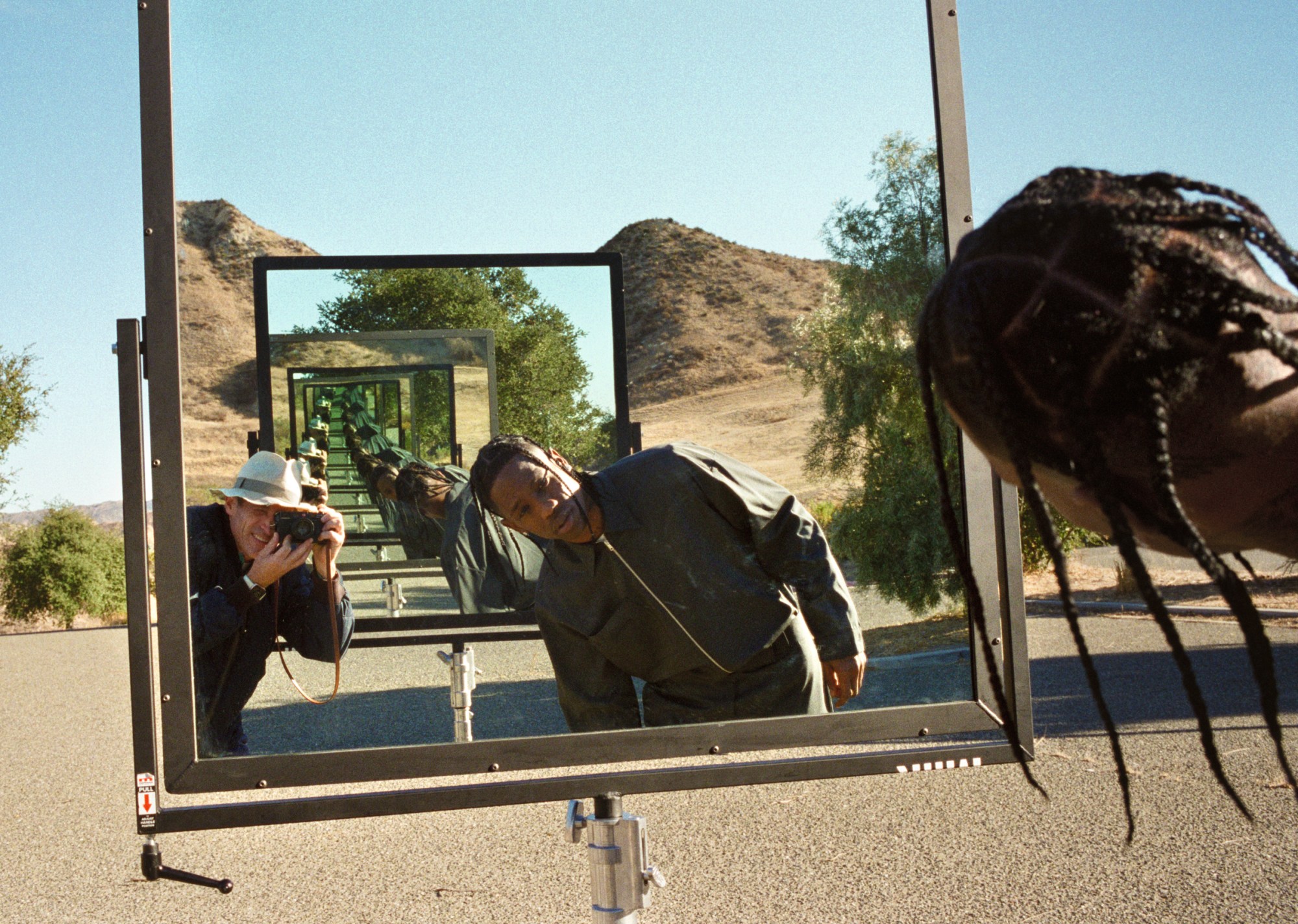
We’re both in the entertainment business. What you make inspires people, gives them an escape from reality long enough to deal with reality in a new way… it can really give somebody a spark. Art can save lives in a lot of ways, it can inspire a new life. And it feels like what we’re doing is more and more crucial during this time. I think art is more important than ever.
You hit it right on the nose. I couldn’t say more. I think that’s exactly it. We got to do more. Now it’s more crucial cause for people to do that, it gives them something, you know?
Hurry up with that new album! The world needs it.
It’s coming. Coming soon. You can bet that.
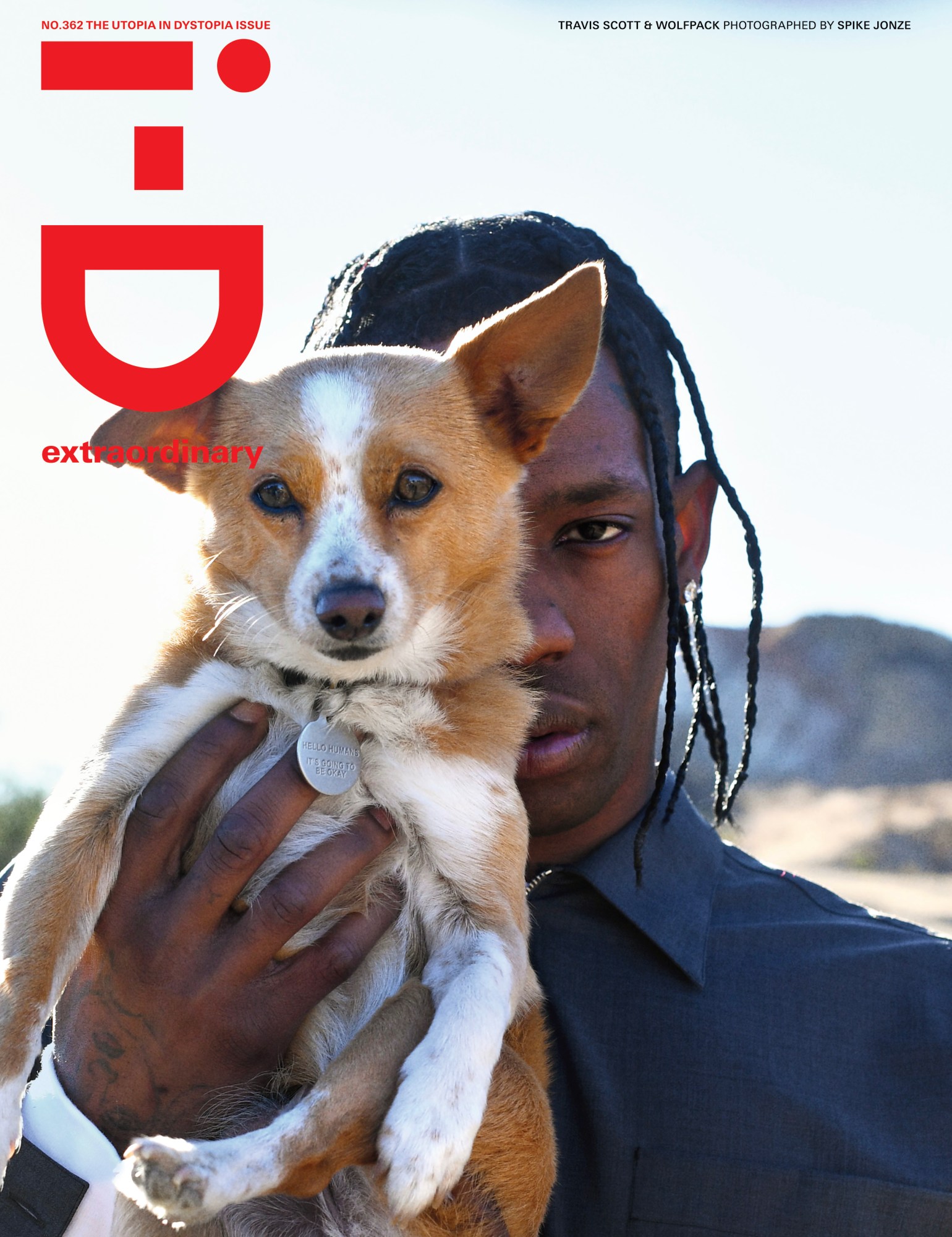
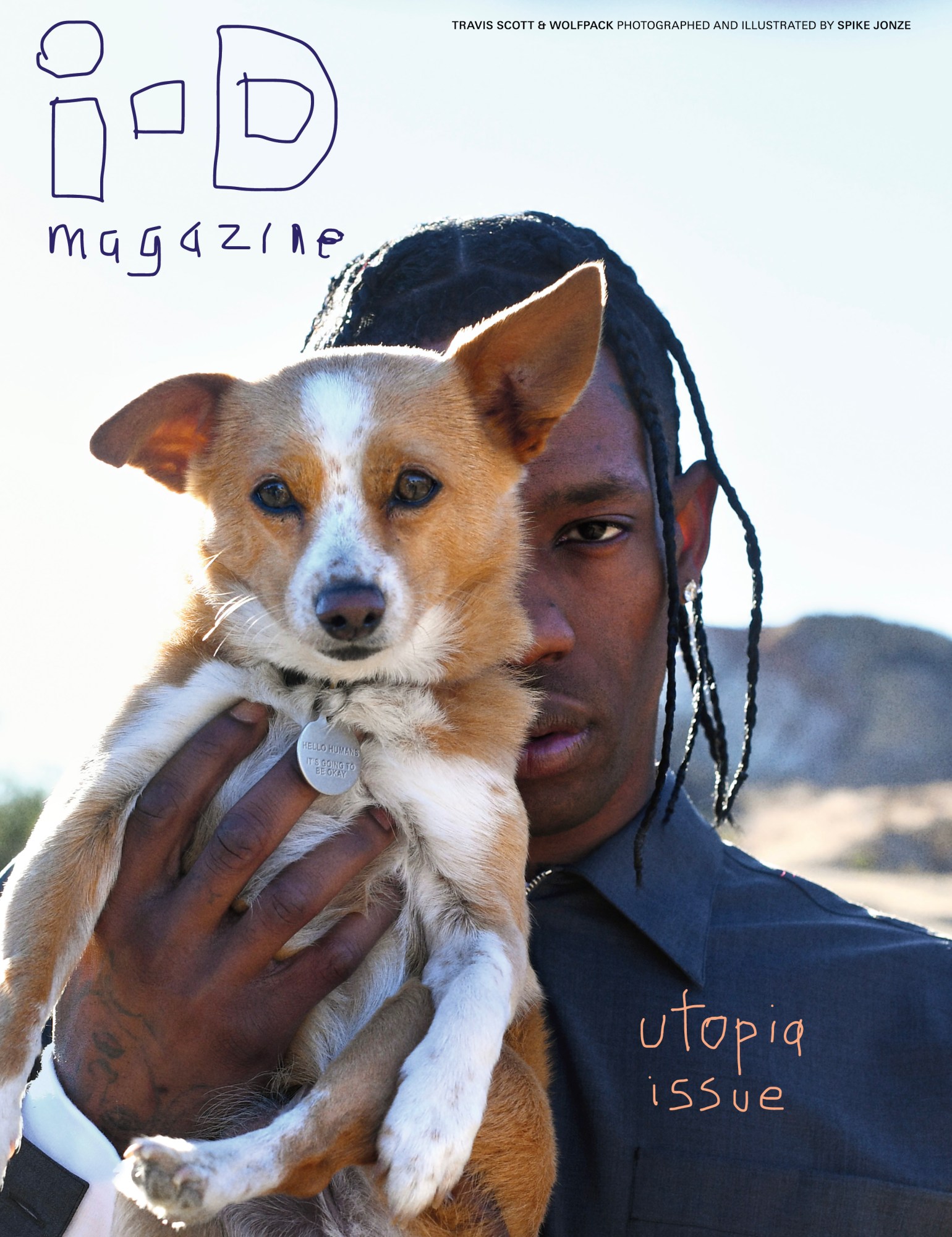
Credits
Photography Spike Jonze
Fashion director Carlos Nazario
Styling Mackenzie Grandquist and Alexandra Grandquist.
Hair Yazmin Adams.
Make-up Amber Amos at The Only Agency.
Groomer Marcus Hatch.
Photography assistance Patrick O’Brien-Smith and John L. Mims.
Styling assistance Raymond Gee and Ruby Bravo.
Tailor Susie Kourinian.
Production Wes Olson at Connect the Dots Inc.
Production co-ordinator Hannah Murphy at Connect the Dots Inc. Production assistance Sonny Johnson, Tyler Werges and Kiyo Vigliotti. Casting director Samuel Ellis Scheinman for DMCASTING.
